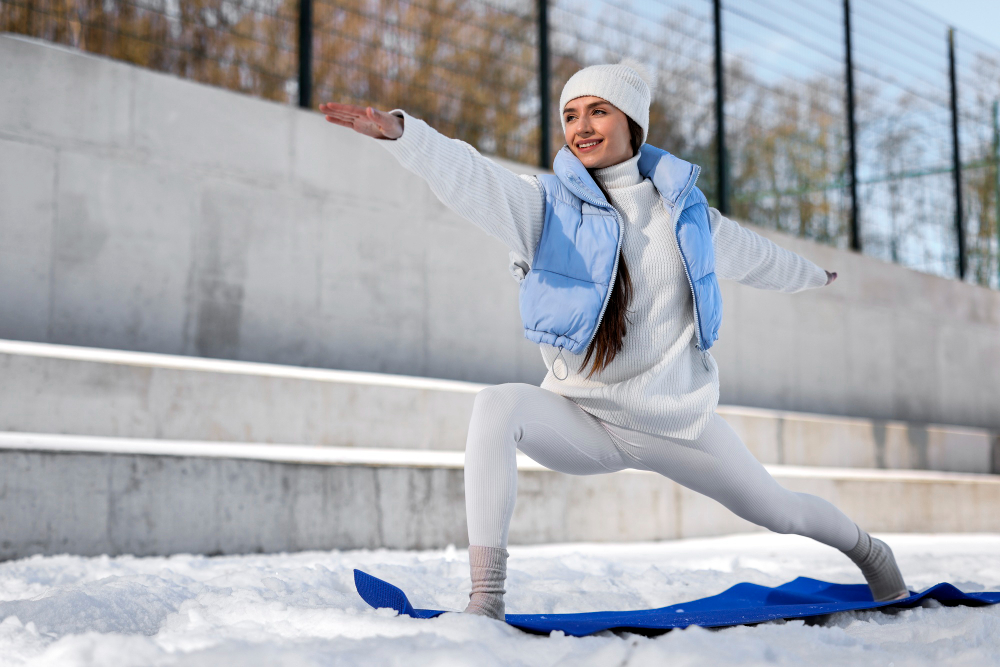Introduction
Staying active in cold weather is important for your heart and joint health. When temperatures drop, many people move less. However, regular movement helps your heart stay strong and keeps your joints flexible. Even in winter, safe winter exercises can protect your health. In this blog, you will learn how to exercise safely in cold weather and keep your body healthy all season long.
Benefits of Staying Active in Cold Weather
First, regular activity helps your heart pump blood better. This lowers your risk of heart disease. Also, moving your body keeps your joints from getting stiff. For example, gentle movement can ease joint pain and improve flexibility. In addition, exercise boosts your mood and energy. Even during winter, staying active can help you sleep better and feel less stressed.
Risks of Inactivity During Winter
On the other hand, not moving enough in winter can harm your health. Your heart may become weaker if you sit too much. Inactivity can also make your joints stiff and sore. Over time, this may lead to weight gain, high blood pressure, or even diabetes. Therefore, it is important to avoid long periods of sitting, especially during cold months.
Safe Indoor Exercises for Heart & Joint Health
Luckily, you can do many joint-friendly workouts indoors. These exercises are gentle on your body but still help your heart and joints. Try these safe winter exercises:
For best results, try to move for at least 30 minutes most days. Even short sessions add up and help your heart health in winter.
Safe Outdoor Activities in Cold Weather
Even when it is cold, you can enjoy outdoor activities. However, you should take extra care to stay safe. Here are some joint-friendly workouts you can try outside:
Before you go outside, dress in layers to stay warm. Always wear a hat, gloves, and good shoes. In addition, warm up indoors for 5–10 minutes before heading out. This helps your muscles get ready and lowers your risk of injury.
Precautions for Heart and Joint Safety
While exercise is good, you should listen to your body. Here are some tips to stay safe:
If you have heart or joint problems, talk to your doctor before starting new exercises. The CDC and WHO recommend checking with a healthcare provider if you have any health concerns.
Lifestyle Tips for Staying Motivated
Staying active in cold weather can be hard. However, these tips can help you keep moving:
Remember, every bit of movement counts. Even short walks or stretches help your heart and joints stay healthy.
Prevention and When to Seek Medical Advice
“To prevent injuries, always warm up before exercise and cool down after. Use proper form and avoid sudden, hard movements. If you feel pain that does not go away, stop and rest. Seek medical advice if you notice:
It is always better to be safe. If you have questions about your heart or joint health, consult your healthcare provider.
Consult Matrix Hospital before starting a new exercise routine, especially if you have existing heart or joint conditions.”

